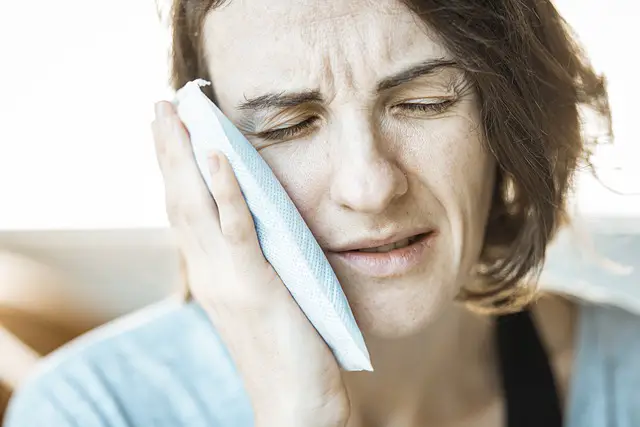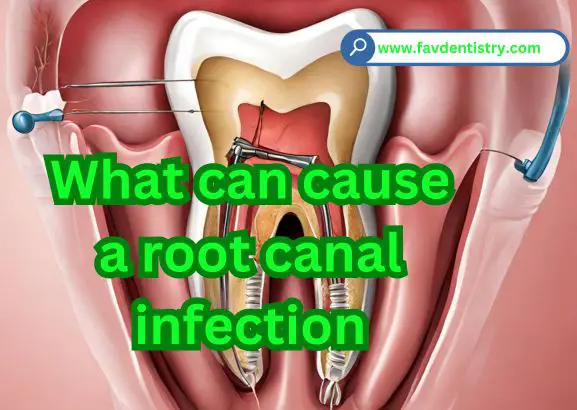Last Updated on 3 weeks by DR. ALBIN SIPES
Saving an infected tooth is called the root canal. The damage is removed, and the inside of the tooth is cleaned and sealed. After a root canal, a smoker can try to smoke.
The answer is no. It’s not a good idea to smoke after a root canal for several reasons. First, smoking can irritate the gums and cause them to swell.
This can make it difficult for the root canal seal to stay in place and could lead to further infection. Additionally, smoking can delay healing and increase the risk of complications such as an abscess.
Can We Smoke After Root Canal Treatment?
A root canal is a treatment used to save a tooth that has been infected or is at risk of becoming infected. After the procedure, it is normal to experience some sensitivity in the treated tooth.
Some people may also have soreness in their jaw from lying in one position for an extended period during the procedure. Over-the-counter pain medications can help with this discomfort. Smoking after a root canal increases the risk of infection.
It would help if you waited 24 hours after a root canal. If you must smoke, try to do so as little as possible and avoid touching the treated tooth with your lips or tongue.
Can Smoking Infect a Root Canal?
Everyone knows smoking is bad for health. But did you know that it can also have a negative impact on your dental health? In particular, smoking can infect a root canal.
In this blog, we first say that Saving an infected tooth is called the root canal. Blood vessels, nerves, and connective tissue are contained in the pulp. After everything is removed, at first, the tooth is cleaned and then sealed.
Smoking increases your risk of developing an infection in a root canal for several reasons. First, it decreases saliva production. Saliva helps to keep the mouth clean and free of bacteria.
Second, smoking damages the immune system, making it harder for the body to fight off infection. Finally, smokers are more likely to develop periodontal disease, which can lead to conditions in the gums and teeth. If you smoke and need a root canal, don’t despair!
The procedure can still be successful if you take good care of your teeth afterward.
Can You Smoke 2 Days After Root Canal?
Yes, you can. Twenty-four hours is enough. But if you wait til 48 hours, it will be superb. This will give the area time to heal and reduce the risk of infection.
The root canal procedure involves removing the damaged area of the tooth, cleaning and disinfecting it, and then filling and sealing it. A root canal can be performed by a dentist or an endodontist (a specialist in treating problems with dental pulp).
Most people who have a root canal procedure don’t experience any difficulties afterward. However, as with any dental treatment, there are some potential risks and side effects associated with root canals. One of the most common side effects is mild discomfort or pain in the treated tooth for a day or two after the procedure.
This pain can usually be controlled with over-the-counter pain medication such as ibuprofen (Advil) or acetaminophen (Tylenol). It’s also common to experience some tenderness in your gums around the treated tooth for a few days after the procedure. In rare cases, more severe complications can occur after a root canal.
These complications might include • Infection: If bacteria are left behind after the procedure, they may cause an infection in your tooth or gums. Symptoms of an infection include severe pain, swelling, warmth around the affected tooth, fever, or pus drainage from your gums.
If you develop these symptoms after having a root canal done, see your dentist right away so that they can treat the infection before it spreads further. • Nerve damage: In sporadic cases (<1%), damage to one of the nerves that run through your teeth (the pulp nerve) can occur during a root canal procedure. This nerve damage may cause numbness or tingling sensations in your tongue, lips, chin, throat, or other areas served by that particular nerve.
Usually, this sensation goes away on its own within 6-12 months; however, if it persists beyond this time frame, you should see your dentist to discuss treatment options. • Allergic reaction: In even rarer cases (<1%), people may have an allergic reaction to materials used during their root canal procedures. Symptoms of an allergic reaction could include itching, hives/rash, shortness of breath/wheezing, dizziness/lightheadedness.
If you develop any of these symptoms while getting a root canal done (or shortly after that), tell your dentist right away so that they can stop the procedure immediately and provide appropriate medical care if needed.
Can I Vape After Root Canal?
There are a lot of questions out there about whether or not you can vape after a root canal. The answer is maybe. It all depends on the type of root canal you had and how your body reacts to it.
If you had a traditional root canal, then you should be fine to vape as long as you don’t have any open sores in your mouth. But, if you had an apicoectomy (surgery to remove the end of your tooth’s root), then you’ll need to wait until the surgical site has healed before vaping. This is because the surgical site can become irritated by the vapor from your e-cigarette, which could delay healing or even lead to infection.
It is best to avoid smoking for at least 24 hours after your root canal procedure. If you must smoke, try to limit yourself to one or two cigarettes and avoid inhaling . It is also essential to brush your teeth and floss everyday to remove any debris that could cause an infection.
If you are experiencing pain or discomfort after your root canal, contact your dentist immediately. They may recommend over-the-counter pain medication or prescribe something more large if needed. Most importantly, do not ignore the signs of an infection, which include fever, swelling, and redness around the tooth.
If left untreated, an infection can lead to severe complications.
So, if you’re not sure whether or not you can vape after your root canal, it’s always best to check with your dentist first.
Dos & Donts After Root Canal Treatment | Precautions After Root Canal || Happy Smiles Dental Care
Is Smoking Possible After a Root Canal And Crown?
If you’ve had a root canal and crown placed on your tooth, you may be wondering if it’s okay to smoke. The short answer is no, it’s not a good idea. Here’s why:
Smoking can contribute to the development of infection at the root canal site. It can also cause the crown to become loose or fall off. In addition, smoking can discolor the crown and make it more challenging to keep clean.
So, if you’ve had a root canal and crown placed on your tooth, it’s best to avoid smoking altogether. If you must smoke, be sure to brush your teeth thoroughly afterward and see your dentist for checkups.
Can I Smoke 24 Hours After Root Canal?
If you’ve had a root canal, you may be wondering if it’s okay to smoke. The short answer is yes, But you should not smoke immediately after the procedure. It’s best to wait at least 24 hours before smoking to give your mouth time to heal.
Smoking can irritate the gums and delay healing. If you do smoke, be sure to brush your teeth and floss to remove any debris that could cause problems.
If you’re having trouble quitting smoking, talk to your dentist or doctor about ways to stop that might work for you. In the meantime, make sure to take good care of your teeth and mouth so that you can enjoy a healthy smile for years to come.
Can Smoking Harm Root Canal With Temporary Filling?
In the root canal procedure, your dentist will place a temporary filling in the tooth to protect it while it heals. You may be wondering if you can smoke after a root canal with a temporary filling.
The answer is no. It is not advisable to smoke after a root canal with temporary filling for several reasons. First, smoking can irritate the gums and cause temporary fillings to come out.
Second, smoking can delay healing and increase the risk of infection. Finally, the chemicals in cigarettes can actually damage the tooth and make it more susceptible to future decay or infection. If you are a smoker, it is best to quit before having a root canal done.
If you cannot quit, at least refrain from smoking for at least 24 hours after the procedure.
Can I Smoke After a Root Canal? What do experts say?
If you’ve had a root canal, you may be wondering if it’s okay to smoke. The short answer is no, you shouldn’t smoke after a root canal. Here’s why:
Smoking can irritate the gums and teeth, which can lead to infection. Infection is one of the main complications of a root canal, so it’s best to avoid anything that could increase your risk. Smoking can also cause dry sockets, which is when the blood clot that forms at the site of the tooth extraction doesn’t heal properly.
A dry socket is extremely painful and can prolong your recovery time. So, if you’re looking to improve your chances of a successful root canal and quick recovery, quitting smoking is a good idea.
Can You Get Dry Socket from Smoking After a Root Canal or Extraction?
A dry socket happens when the blood clot that forms in the socket to protect the bone and nerves is either dislodged or doesn’t form properly.
A dry socket occurs more often with lower teeth than with upper teeth. It is recommended not to smoke in a dry socket. The chemicals in cigarettes can interfere with healing and increase the chances of developing an infection.
If you smoke after having a tooth extracted, it’s crucial to take measures to reduce your risk of developing a dry socket. There are several things you can do to reduce your risk of developing a dry socket if you smoke: • Quit smoking before having your tooth extracted.
If you can’t quit, at least try to abstain for as long as possible before and after the extraction. • Avoid using straws or spitting immediately after the extraction since this can dislodge the blood clot. • Rinse your mouth with warm salt water several times a day starting the day after your extraction.
Chewing Tobacco After Root Canal
The infected, damaged tissue is removed, and the tooth is cleaned and sealed. A root canal can be a very successful treatment, but it’s essential to take care of your tooth afterward.
It means avoiding activities that could damage the tooth, like chewing tobacco. Chewing tobacco can be very harmful to your teeth and gums. The sugar in tobacco can cause decay, and the nicotine can make your gums shrink away from your teeth.
It makes it easier for bacteria to get into your gum tissue and cause an infection.
Conclusion
In this whole blog, the short notice is that after a root canal, smoking can help you. When the damaged tissue is removed, the tooth is cleaned and sealed. A root canal can be a very effective way to save a tooth, but it’s essential to know that you should not smoke after the procedure.
If you must smoke, wait at least 48 hours after the procedure, and be sure to brush your teeth well before smoking.






